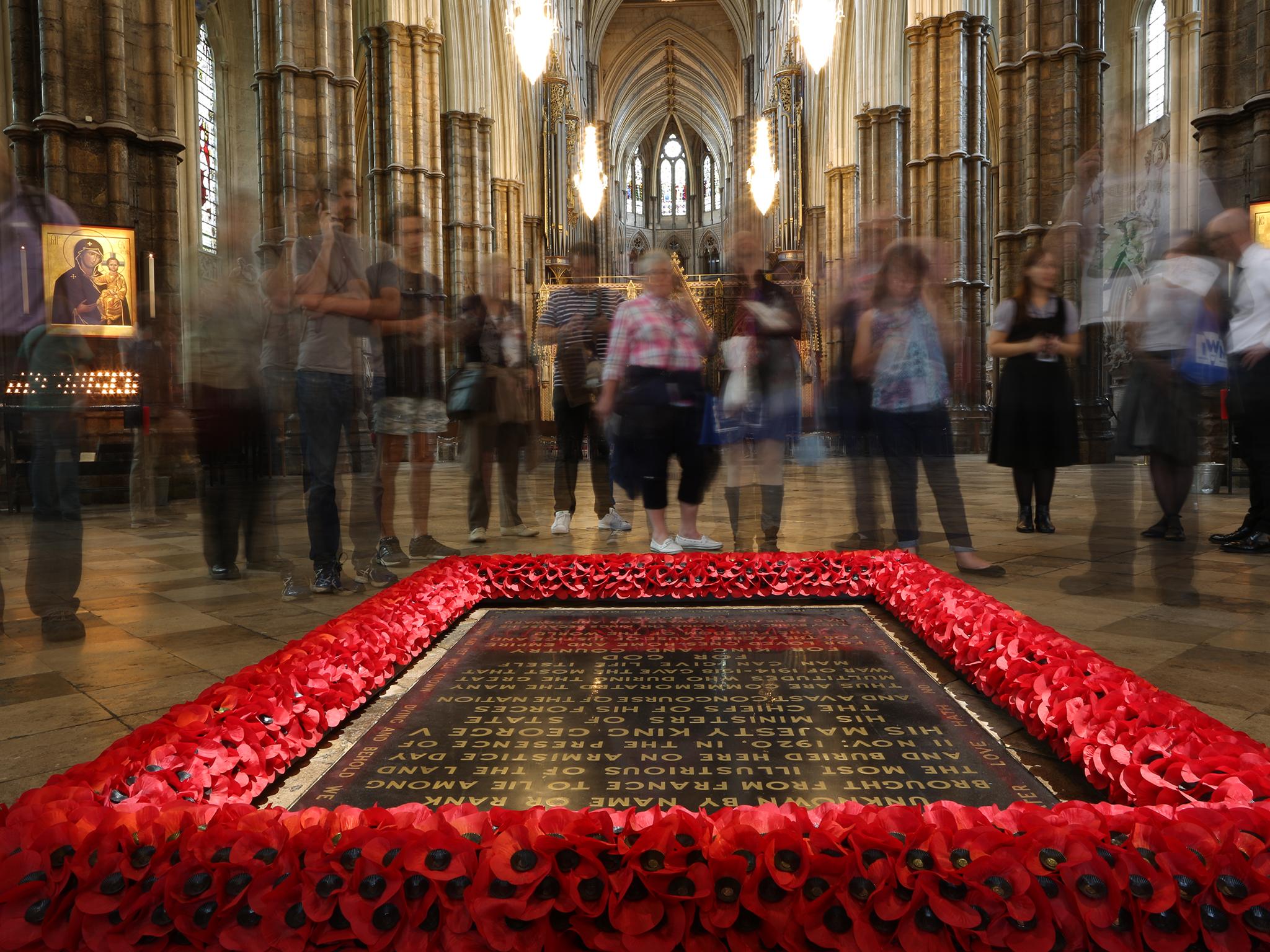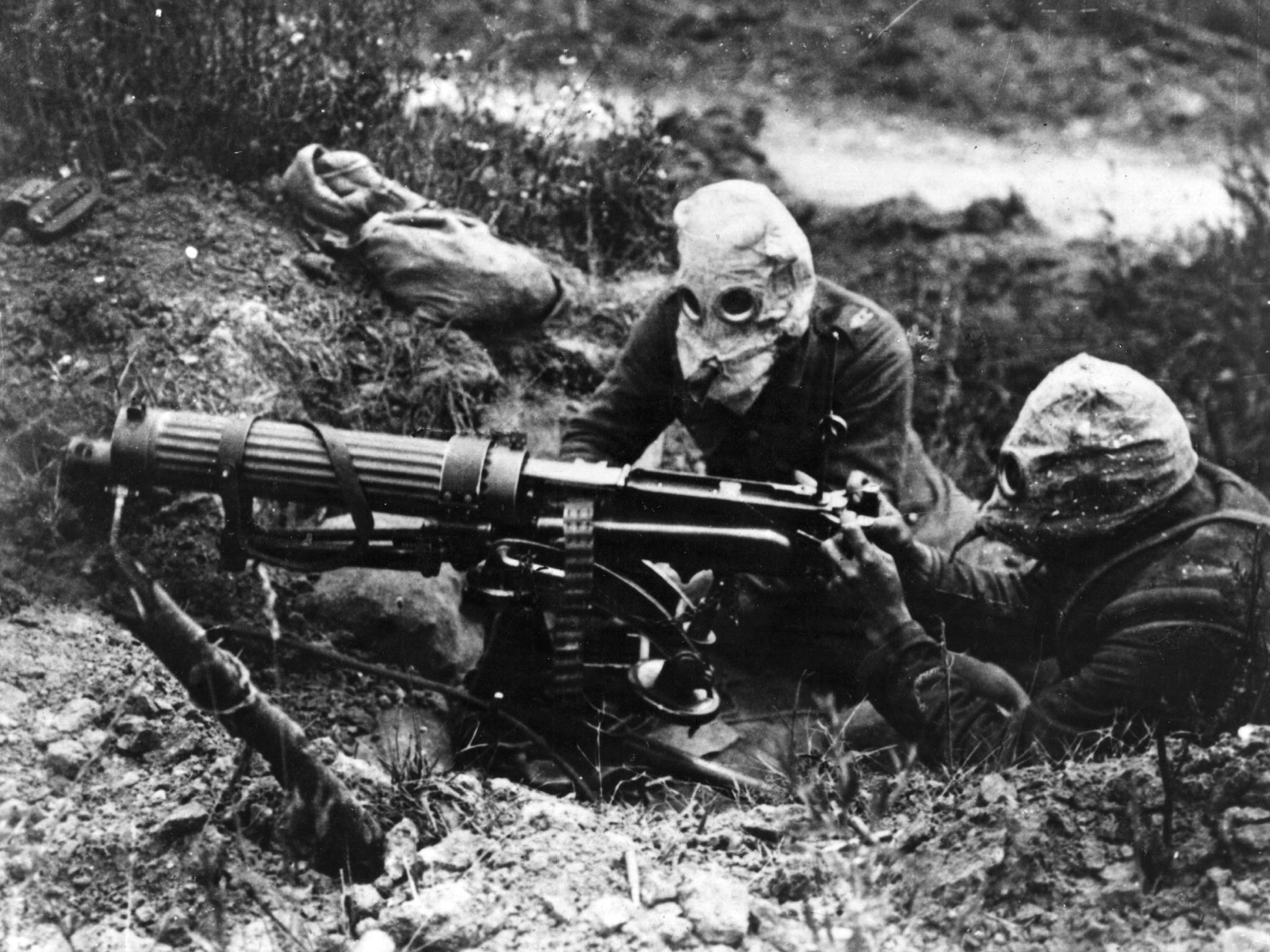Battle of the Somme centenary: The Queen to lead UK in remembrance of bloodiest day in British military history
Events across the UK and in France will commemorate the start of the battle on July 1 1916

Your support helps us to tell the story
From reproductive rights to climate change to Big Tech, The Independent is on the ground when the story is developing. Whether it's investigating the financials of Elon Musk's pro-Trump PAC or producing our latest documentary, 'The A Word', which shines a light on the American women fighting for reproductive rights, we know how important it is to parse out the facts from the messaging.
At such a critical moment in US history, we need reporters on the ground. Your donation allows us to keep sending journalists to speak to both sides of the story.
The Independent is trusted by Americans across the entire political spectrum. And unlike many other quality news outlets, we choose not to lock Americans out of our reporting and analysis with paywalls. We believe quality journalism should be available to everyone, paid for by those who can afford it.
Your support makes all the difference.The Queen and senior royals will lead the nation in remembrance to mark the centenary of the Battle of the Somme.
Events across the UK and in France will commemorate the start of the battle on July 1 1916, a day that became the bloodiest in British military history with almost 20,000 dead.
By the time the battle in northern France finished four months later, more than a million soldiers had been killed and wounded on both sides of the fighting. The First World War would drag on for another two years.
At Westminster Abbey in London, the Queen and Duke of Edinburgh will join the congregation for an evening vigil on Thursday, the eve of the anniversary of the start of the battle. Other overnight events will take place in Wales, Scotland and Northern Ireland.
The Duke and Duchess of Cambridge and Prince Harry will attend evening events at the monumental Thiepval Memorial in France, where 70,000 British and Commonwealth soldiers with no known grave are commemorated.
The events include a climb to the top of the huge, newly-renovated structure, which will be lit for the first time, to view the killing fields. There is to be a military vigil and a meeting with representatives of nations involved in the battle.
Somme selfies: long-lost photographs of British soldiers involved in the battle
On Friday they will be joined by the Duke and Duchess of Cornwall and 10,000 members of the public, including hundreds of schoolchildren, chosen by ballot, for a service of commemoration.
Charles and Camilla will then attend ceremonies for Northern Irish and Canadian victims of the battle at the nearby Ulster Tower and Beaumont-Hamel Newfoundland Memorial, respectively.
Camilla will also lay a wreath at the grave of her great uncle, Captain Harry Cubitt, who was killed on the Somme in September 1916 while serving with the Coldstream Guards. He was the eldest, and the first, to die of three brothers killed serving on the Western Front.
Beginning on July 1 1916, the Battle of the Somme was intended to achieve a decisive victory for the British and French against Germany's forces.
The British Army was forced to play a larger than intended role after the German attack on the French at Verdun in February 1916.
The first day of the Battle of the Somme became the bloodiest in British military history with more than 57,000 casualties recorded - of these 19,240 were fatalities.

Among the worst hit were the Pals battalions, volunteer units of limited fighting experience. Many were told to walk slowly across no man's land, resulting in massive numbers of dead as they headed straight into German machine gun fire.
The 2,000 men of the the 1st and 2nd Bradford Pals, both part of the West Yorkshire Regiment, suffered 1,770 casualties in the first hour of the offensive as they attacked the heavily fortified village of Serre.
Press Association
Subscribe to Independent Premium to bookmark this article
Want to bookmark your favourite articles and stories to read or reference later? Start your Independent Premium subscription today.
Join our commenting forum
Join thought-provoking conversations, follow other Independent readers and see their replies
Comments